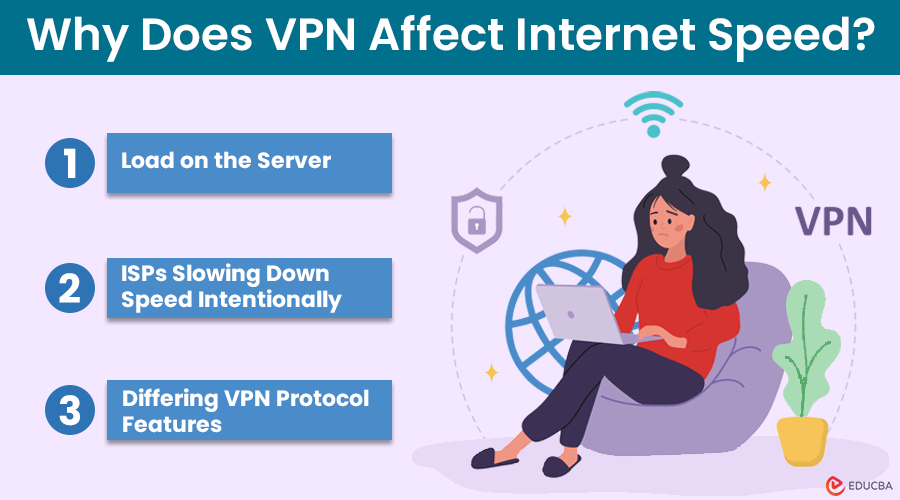Does VPN Affect Internet Speed? – Overview
As data security and privacy fears grow, VPNs become essential assets to both consumers and companies. They not only shield your information from prying eyes and hackers, but they also improve your online privacy. However, does using a VPN slow down your internet speed?
The simple answer is ‘Yes’, it does. However, there are ways you can make the most out of your VPN experience. The prominent one is using a premium VPN service that can improve your overall connection by offering unique features, faster performance, and more choices of servers. You can go to Freevpnmentor for further information in-depth.
In this blog, we will explain why a VPN affects your internet speed and how you can make it faster.
Why Does VPN Affect Internet Speed?
Here are the main factors that affect internet speed when using a VPN:
1. Load on the Server
The speed of a VPN server depends on how many people are using it. If a server is crowded with too many users, it can slow down everyone’s connection. Choosing servers with fewer users can help you maintain faster speeds.
2. ISPs Slowing Down Speed Intentionally
Some internet service providers (ISPs) intentionally slow down internet speed when they detect certain activities, like streaming or downloading. A VPN hides your online activity from your ISP, helping you avoid throttling (slowing) and providing a faster and more reliable connection.
3. Differing VPN Protocol Features
Different VPN protocols have varying levels of overhead and encryption strength. Some protocols may be faster but less secure, while others offer stronger security at the expense of speed.
How to Use a VPN to Increase Internet Speed?
Here are a few tips to help you make the most of your VPN use and increase your internet speed:
1. Select a Server That Is Near Your Location
Select a VPN server that is geographically closer to your actual location. This helps to boost speed because the closer you are to the server, the faster your internet will be since your data has to travel a shorter distance.
2. Select Servers with Minimal Traffic
To speed up your internet with a VPN, choose servers that aren’t too crowded. Check out the server load information provided by many VPN services to look for servers with fewer users. This helps you avoid traffic jams and get faster speeds.
3. Make Use of a Wired Network
While Wi-Fi is more convenient, cable connections are faster and more secure. So, for a faster connection, use an Ethernet cable to connect your device and your router.
4. Pick the Appropriate VPN Protocol
Different VPN protocols provide different security and speed ratios. Protocols like IKEv2/IPSec and OpenVPN can provide solid safety but slow your connection. WireGuard is a newer, faster, and easier-to-use VPN protocol that keeps you safe without slowing down your internet as much.
5. Reduce the Level of Encryption
Lowering the encryption level can speed up your connection. If you don’t need maximum security, consider using a less secure encryption level like AES-128 instead of AES-256 for greater speed.
Final Thoughts
VPNs ensure internet security, but they can also affect internet speed. However, by understanding how VPNs work and implementing the tips provided, you can optimize your VPN speed without compromising safety. This reassures you that you can have a secure online experience without significant speed limitations.
Recommended Articles
We hope you found the answer to ‘Does VPN affect Internet Speed’. If you want to learn more about VPN and related topics, please check the links below.




